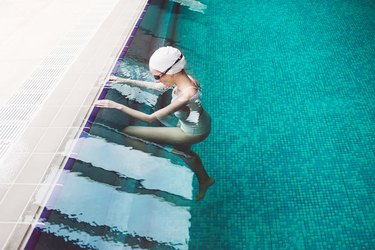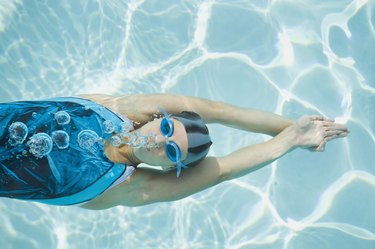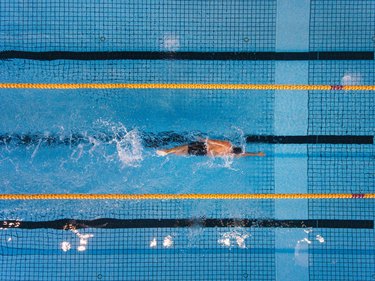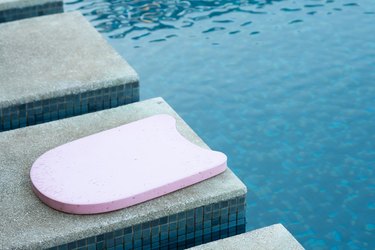
Sure, you can run or pedal your way to a fitter body, happier mood and better health. But if you have access to a pool or open-water swimming spot, why wouldn't you freestyle, breaststroke or butterfly your way there instead?
Swimming for exercise might feel intimidating at first, what with counting those seemingly endless laps and sputtering to catch your breath. But it's worth the effort to get comfortable in the water: Swimming works all your muscles, torches calories and washes away stress — without overtaxing your joints.
Our guide to all things swimming will help you get started, find the best gear and make sure you get the most out of your next water workout.
Before You Dive In

Starting to swim takes a little more practice than just arming yourself with fresh new goggles and a swim cap. "Swimming takes longer to adapt to than any other sport," says Gerry Rodrigues, a Los Angeles-based swim instructor. But most new swimmers catch on fast: You'll likely see progress within a month. (And even if it turns out swimming's really not your thing, you can always give these pool-based exercises a try instead.)
Here's what beginner swimmers need to know to master perfect swimming form.
Why Swimming Is So Good for You

Swimming has all the mental and physical health benefits of land-based exercise — and some added perks: You'll score a heart-pumping cardio workout along with the unique stress-relieving benefits of the meditation-like breathing that swimming requires. And because it's so low-impact, swimming is an exercise you can do at almost any age, which is even more appealing when you consider the fact that people who swim regularly tend to live longer, according to a May 2017 study in the British Journal of Sports Medicine.
Not convinced? These benefits of swimming will motivate you to hop in the pool.
Stay Safe While You Swim

Like any workout, swimming comes with some risks to be aware of (looking at you, lightning strikes), but following a few simple safety tips can keep you out of harm's way at the pool, lake or beach. A less-than-obvious place to start? Bring your water bottle: Because you're submerged in water, you might not notice that you're sweating, but you can definitely still get dehydrated during a swimming workout.
Make sure you're following these essential swimming safety rules.
Swim Stronger

Once you've gotten into a swimming routine, it's time to (flutter) kick things up a notch. Making a few tiny tweaks to your stroke (think: pointing your toes and lengthening your arms) will help you get fitter faster and make workouts that used to feel impossible seem more like child's play.
Make waves with these tips for becoming a better swimmer.